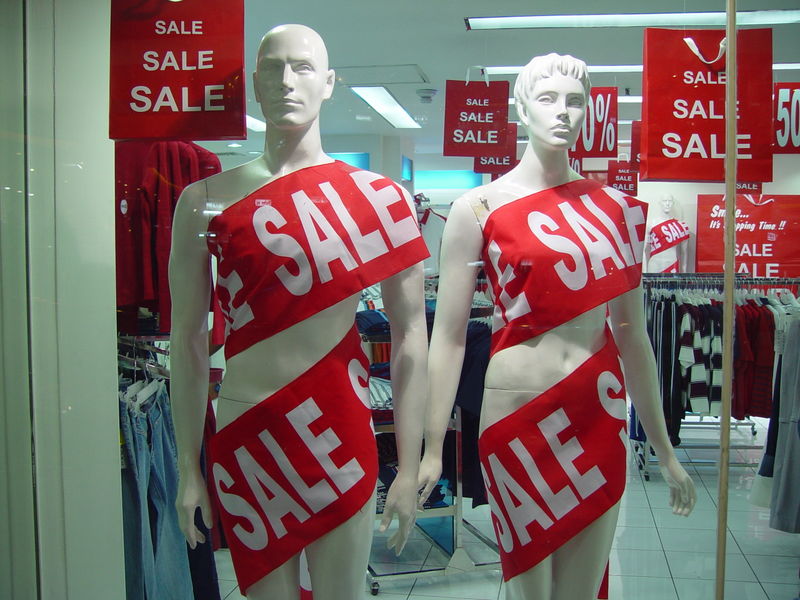Science Update: Consumerism
Interview with
Bob - This week for the Naked Scientists, we're asking that age-old question, why do you buy what you buy? I'm going to tell you how the number of choices you have in front of you makes a difference, but first, Chelsea informs us that celebrities don't seem to have the power over our minds that some companies seem to think they have. Chelsea - We aren't sure if it was this way in the UK, but Catherine Zeta-Jones was once as synonymous with T-mobile in the US as its ubiquitous jingle. That is, until last year, when T-Mobile dropped her as its spokesperson, and said it would instead use everyday sorts of people in its ads. Well, new research from marketing professor Brett Martin of the University of Bath seems to vindicate that decision. His team found that people who buy products to impress others were more influenced by ads with so-called typical consumers than those with celebrities. Martin says this may be because the unknown spokesperson seems like someone you might actually meet and get a chance to impress.Brett Martin (University of Bath): What this means is that it may be more effective to spend less money getting typical consumers than more money on expensive celebrities.Chelsea - On the other hand, some of the nearly 300 volunteers had no interest in impressing anyone. They looked only at the product specs.Bob - Thanks, Chelsea. If you're opening an ice cream parlor, you might think it's better to offer sixty flavors than a measly six. But some studies have shown that consumers actually buy more when given fewer choices. To better understand this, Dartmouth College cognitive psychologist George Wolford and his students tried to sell up to twenty different kinds of black pens. Then they charted their sales success against the number of choices offered.George Wolford (Dartmouth College): We found that it peaked at ten, and went down on either side of ten, but we strongly felt that if you had other items, probably more complex items, we would expect it to peak at lower numbers. Bob - The findings demonstrate that more selection can, in fact, be a good thing up to a critical point. He says this probably applies not just to buying a TV, but also to choosing a career or even a spouse. Chelsea - Thanks, Bob. We'll be back next time with more science stories delivered with an American accent. Until then, I'm Chelsea Wald...Bob - And I'm Bob Hirshon, for AAAS, The Science Society. Back to you, O Naked Ones!
Chelsea - We aren't sure if it was this way in the UK, but Catherine Zeta-Jones was once as synonymous with T-mobile in the US as its ubiquitous jingle. That is, until last year, when T-Mobile dropped her as its spokesperson, and said it would instead use everyday sorts of people in its ads. Well, new research from marketing professor Brett Martin of the University of Bath seems to vindicate that decision. His team found that people who buy products to impress others were more influenced by ads with so-called typical consumers than those with celebrities. Martin says this may be because the unknown spokesperson seems like someone you might actually meet and get a chance to impress.Brett Martin (University of Bath): What this means is that it may be more effective to spend less money getting typical consumers than more money on expensive celebrities.Chelsea - On the other hand, some of the nearly 300 volunteers had no interest in impressing anyone. They looked only at the product specs.Bob - Thanks, Chelsea. If you're opening an ice cream parlor, you might think it's better to offer sixty flavors than a measly six. But some studies have shown that consumers actually buy more when given fewer choices. To better understand this, Dartmouth College cognitive psychologist George Wolford and his students tried to sell up to twenty different kinds of black pens. Then they charted their sales success against the number of choices offered.George Wolford (Dartmouth College): We found that it peaked at ten, and went down on either side of ten, but we strongly felt that if you had other items, probably more complex items, we would expect it to peak at lower numbers. Bob - The findings demonstrate that more selection can, in fact, be a good thing up to a critical point. He says this probably applies not just to buying a TV, but also to choosing a career or even a spouse. Chelsea - Thanks, Bob. We'll be back next time with more science stories delivered with an American accent. Until then, I'm Chelsea Wald...Bob - And I'm Bob Hirshon, for AAAS, The Science Society. Back to you, O Naked Ones!
- Previous The Evolution of the Peppered Moth
- Next Science Update: Deserts









Comments
Add a comment